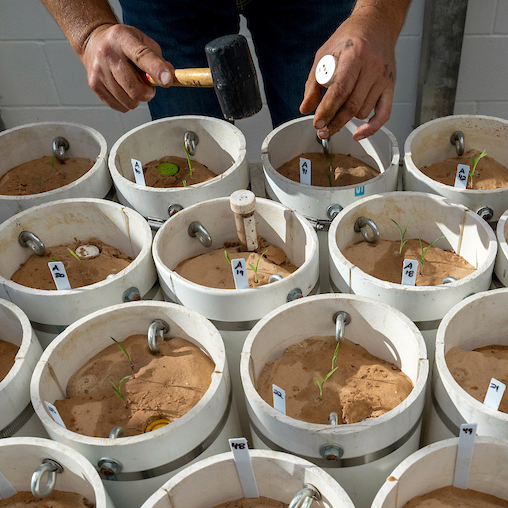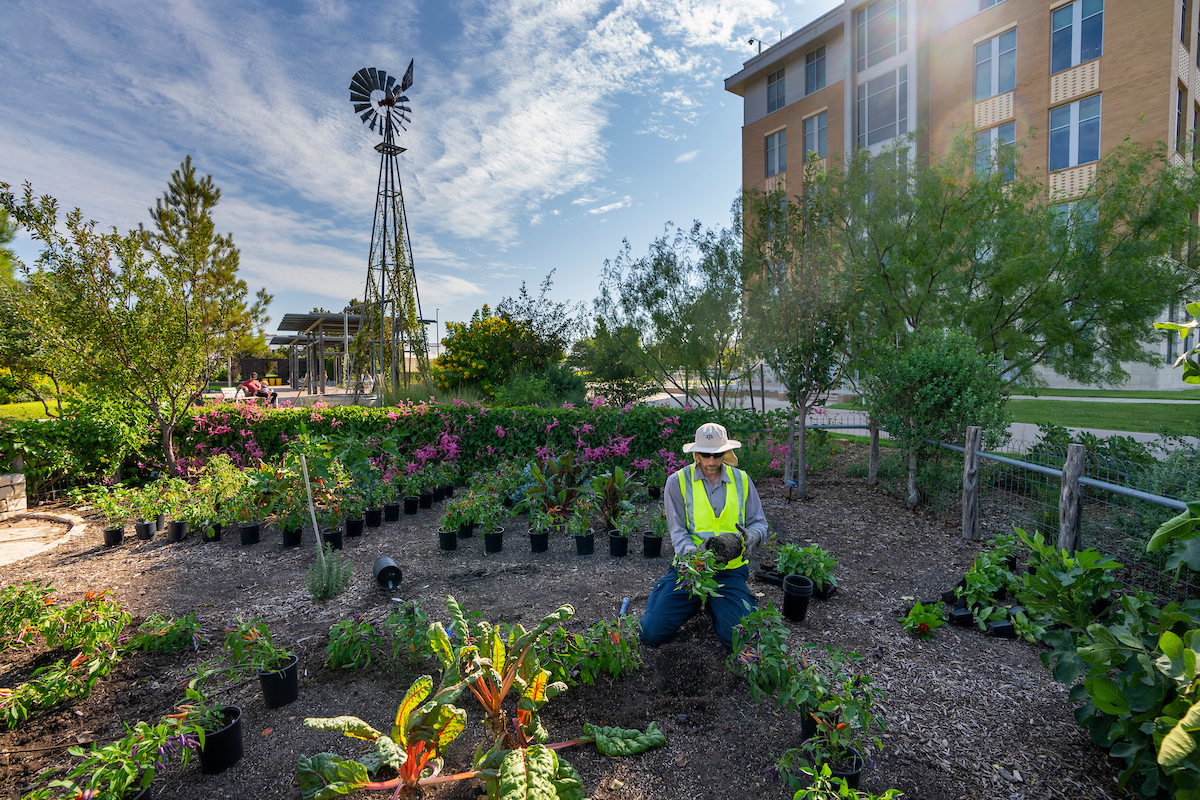
Graduate Programs
The graduate programs of the Department of Horticultural Sciences are designed to prepare individuals for careers in research, teaching, extension and industry. Research-oriented programs in the areas of fruit/nut/vegetable breeding, production and processing; ornamental horticulture/nursery crops; post-harvest physiology; greenhouse/floriculture production, marketing and economics; plant-microbe interactions; viticulture/enology; genetics/genomics; and plant physiology are available to students. Supporting work may be required in several related fields such as chemistry, biology, plant pathology, plant physiology, entomology, soils, genetics, nutrition and agricultural engineering. The specific objective of the individual student will guide his or her committee in the choice of courses from the departments mentioned above and others in special cases.
Graduate Degrees
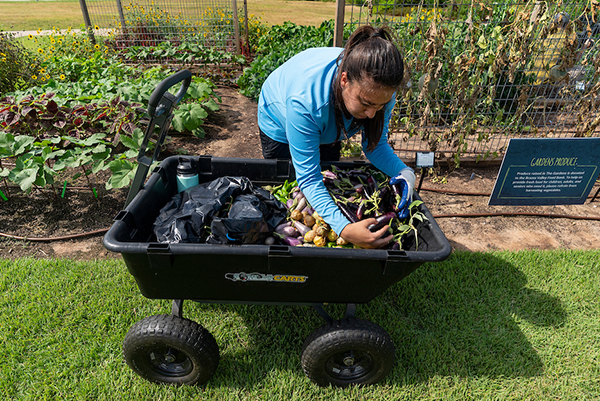
M.S. Horticulture
The Masters of Science (MS) degree in Horticulture provides an advanced science-based education for students through innovative teaching and directed horticultural research experiences. The program encompasses basic genetic, physiology, production, processing and utilization of horticultural products including fruits, vegetables, flowers, and landscape plants.
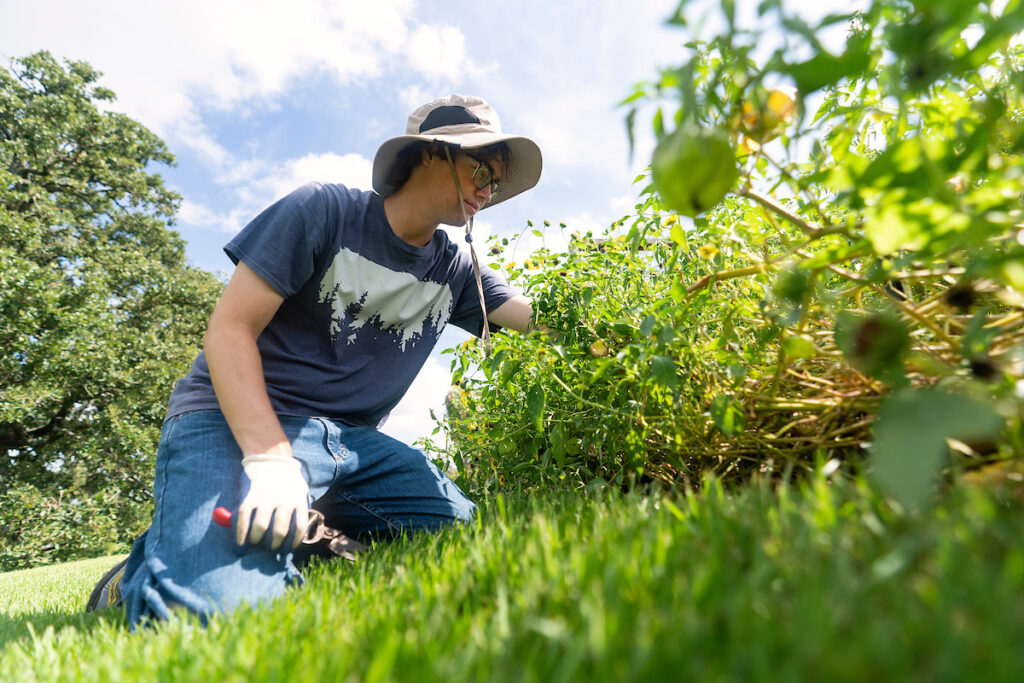
M.Agr. in Horticulture
The Master of Agriculture (MAgr) degree in Horticulture is designed for a student who wants professional graduate education that provides management training and emphasizes problem-solving, critical thinking and communication skills through innovative teaching and directed horticultural internships.
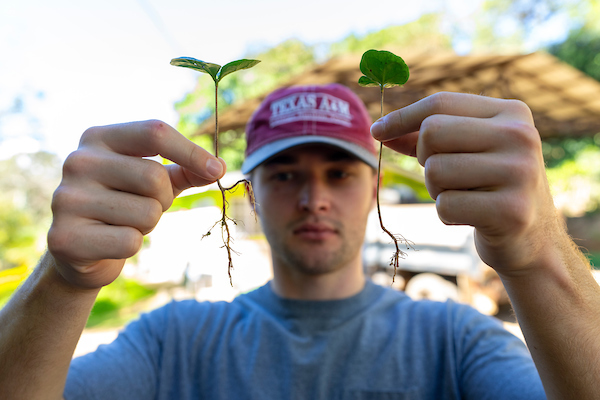
Ph.D. Horticulture
The Doctor of Philosophy (PhD) degree in Horticulture program is designed to prepare students to become successful independent researchers to help meet the challenge of providing nutritious foods and sustaining an aesthetically-pleasing and healthy environment to support the health and well-being of the citizens of Texas and beyond.
Interdisciplinary Programs for Graduate Students
Graduate students in the Department of Horticultural Sciences can major in Food Science and Technology (FSTC), Genetics (GENE), Molecular and Environmental Plant Physiology (MEPS), or Plant Breeding (PLBR) but must meet the course prerequisite requirements set forth by the Interdisciplinary Faculty of that major. Interested students should contact a graduate advisor for more information.
| Graduate Degrees Offered Through These Interdisciplinary Programs | M.Ag. | M.S. | Ph.D. |
|---|---|---|---|
| Food Science and Technology | X | X | X |
| Genetics | X | X | |
| Horticulture | X | X | X |
| Molecular and Environmental Plant Sciences | X | X | |
| Plant Breeding | X | X |
NOTE: The Plant Breeding M.S. & Ph.D. via distance education technology program began Spring 2013. View the Department of Horticultural Sciences Distance Plant Breeding Handbook for more information.
Graduate Funding Opportunities
There are a number of fellowship and scholarship opportunities that are available to graduate students, both through the Department of Horticultural Sciences and through the Texas A&M University Office of Graduate Studies. Many of these awards also provide a nonresident tuition waiver.
Explore the resources below for more information about fellowship awards, eligibility requirements, and application deadlines.
Graduate Assistantships in Horticultural Sciences
- All assistantships are awarded on a competitive basis.
- Some teaching assistantships are available from the Department.
- Most research assistantships are funded from grants held by individual faculty members.
- You should inquire about the availability of research assistantships from the individual faculty whose programs interest you.
- You should only go to the expense of applying if there is a program in your area of interest and which has an opening for a new graduate student.
